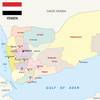Alaska is casting a cool eye toward cruise ships, with the state's legislature preparing to pass the first state law regulating the $12 billion industry. In a special session which begins Thursday, legislators will consider a bill that outlines strict new standards for the treatment, disposal and monitoring of cruise ship waste water.
Hawaii and California are among states looking at the Alaska waste-water regulations. A task force in California is due to report to the legislature there in 2003 on possible changes. State tests conducted last year found that one in 80 samples of cruise ship waste water met federal standards. Seventy percent of so-called gray water, the waste from galleys, showers and kitchens, contained unacceptable fecal bacteria counts that ranged as high as 50,000 times the standard for treated sewage.
Royal Caribbean, Holland America and other major cruise lines have, in recent years, paid fines or been cited for pollution violations in Alaska.
Last month, the U.S. Coast Guard cited the Norwegian Sky, owned by Norwegian Cruise Lines, unit of Star CruiseGroup for dumping inadequately treated sewage in waters off the coast of Juneau. Alaska's new requirements would move beyond existing international and federal laws for the cruise industry, which grew rapidly through the 1990s and will add dozens of new ships over the next five years.
In addition to the waste-water controls, Alaska legislators are contemplating a per-head tax of $50 per cruise ship passenger. "There are some people who say we should be getting something out of that industry like we do from oil and gas," said Bob King, spokesman for Alaska Gov. Tony Knowles.
Knowles, who has not taken a position on a passenger tax, ordered the special legislative session.
This year, the cruise ships will bring between 670,000 to 700,000 visitors to Alaska's Inside Passage, a distinctive mix of snow, sea and wildlife.
Some environmentalists, politicians and Alaska residents complain that the crowds are too intrusive and too large, often far outnumbering residents in a port. They also complain the visitors put the state's natural splendor at risk.
At peak cruise season, the average 45,000 passengers and crew sailing the state's waters each day equal the population of the third largest city in Alaska, a state that is home to about 626,000 people. John Hansen, president of the North West CruiseShip Association, said Carnival, Royal Caribbean, Princess and the other big cruise operators all back the new waste water standards, but adamantly oppose the $50 per passenger tax. King said political support for the proposed waste-water law was strong, but passage might be slowed by efforts to put in place the $50 passenger tax. Knowles has advocated taking the tax issue up separately later, King said. - (Reuters)
Featured videos

Inside the Electrified Truckable Tug

Inmarsat Enhances Service to Drive Digitalization

Tracking Foreign Vessels Working in the U.S. Jones Act Market
Subscribe for
Maritime Reporter E-News
Maritime Reporter E-News is the maritime industry's largest circulation and most authoritative ENews Service, delivered to your Email five times per week









